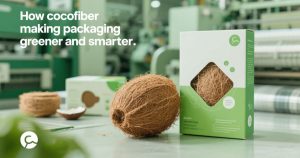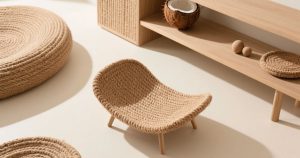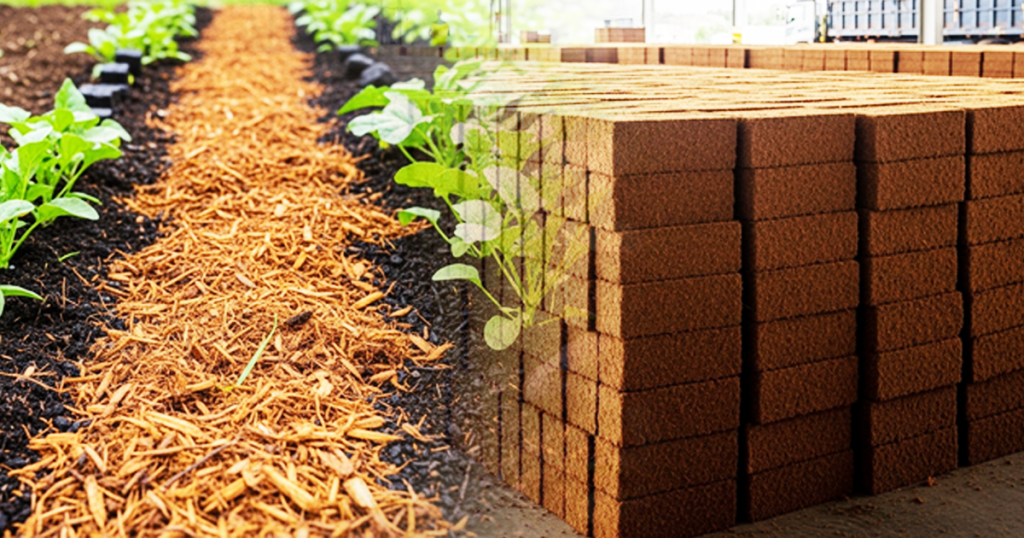Eco-Innovation on Wheels: Coco Fiber Enters the Automotive Industry
As a researcher deeply involved in sustainable biomaterials, the evolution of coco fiber derived from the husk of the humble coconut has always fascinated me. Once relegated to agricultural mulch and simple handicrafts, this fibrous material is now carving a significant niche in an unexpected arena: the automotive industry.
With the increasing global pressure on manufacturers to adopt eco-friendly solutions, coco fiber emerges as both a symbol of innovation and a practical material poised to revolutionize vehicle design.
The Green Shift in Automotive Materials
The automotive sector has been undergoing a radical transformation. Traditional synthetic and petroleum-based materials are increasingly viewed as outdated, primarily due to their environmental impact and difficulty in decomposition. In response, manufacturers are exploring plant-based alternatives. Among these, coco fiber also known as coir is gaining traction due to its natural resilience, durability, and biodegradability.
Automotive giants, particularly in Germany, Japan, and India, are already integrating coco fiber into interior components. From door panels and seat cushions to dashboard linings, this natural fiber provides a lightweight, breathable, and cost-effective substitute for synthetic polymers. Its unique cellular structure offers excellent acoustic and thermal insulation an essential feature in enhancing passenger comfort.
Research and Development: From Agriculture to Automotives
The journey from coconut farm waste to vehicle interior begins with rigorous R&D. My own laboratory has conducted comparative tensile strength testing and aging simulations on treated versus untreated coco fibers. The results have consistently shown that treated coir exhibits remarkable resistance to moisture and microbial decay, making it suitable for long-term automotive use.
We also collaborated with material engineers to develop composite panels combining coir with natural latex or bio-based resins. These composites maintain structural integrity even under high stress, rivaling traditional fiberglass components while significantly reducing carbon emissions during production.
Sustainability and Supply Chain Advantages
One of the most compelling arguments for using coco fiber lies in its abundance and renewability. Coconut-producing nations, such as Indonesia, the Philippines, and India, generate millions of tons of coir waste annually. Utilizing this biomass not only reduces environmental pollution but also boosts local economies by creating value-added supply chains.
For the automotive industry, this presents a dual advantage: an environmentally responsible image and a reduced dependency on finite petroleum resources. Moreover, with transportation regulations increasingly favoring low-emission vehicles, even material sourcing is under scrutiny.
Coco fiber offers an opportunity to align with global sustainability mandates such as the EU’s End-of-Life Vehicles Directive and the UN’s Sustainable Development Goals.
Challenges Ahead: Scaling and Standardization
Despite its advantages, the integration of coco fiber in the automotive sector is not without challenges. Standardization remains a significant hurdle. Unlike synthetic fibers produced under tightly controlled conditions, natural fibers vary in quality due to environmental and processing factors.
Uniformity in fiber strength, moisture content, and texture must be achieved to meet the strict specifications of auto manufacturers.
Additionally, the development of global supply chains for consistent, treated coco fiber requires international cooperation. Infrastructure investments in processing centers, particularly in rural coconut-farming regions, are vital.
Governments and private investors need to view this not merely as an environmental initiative but as a profitable industrial opportunity.
A Future Paved with Natural Fibers
The rise of coco fiber in automotives is more than a trend it signals a structural shift toward bio-based engineering. As a researcher, I foresee a future where natural fibers do not merely supplement but replace synthetic materials across multiple sectors.
Our team is already exploring hybrid composites, blending coir with kenaf and flax, to enhance structural diversity and mechanical performance.
With advancements in nanotechnology and material science, the potential applications of coconut fiber could soon extend beyond interiors possibly into semi-structural elements. The automotive world is on the brink of a sustainable renaissance, and coco fiber is steering the wheel.







